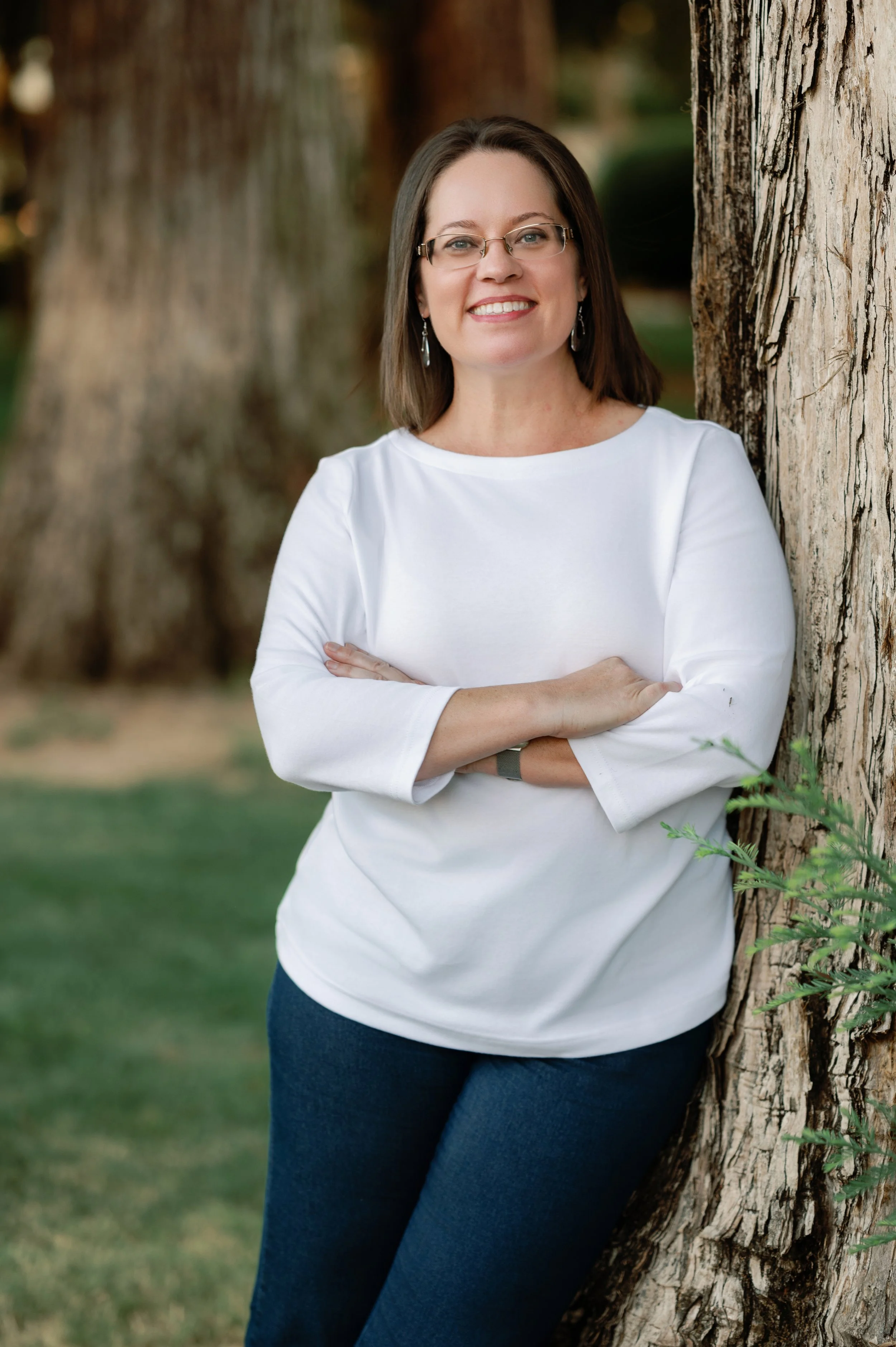
Grief Counseling
Long-term healing from unexpected, sudden grief and loss using body-based therapies
Online throughout all of California, Idaho & Maryland
When Loss Stops You in Your Tracks...
You feel like you’re in a haze. Everyone else is getting on with their lives, but you don't see a way forward. You're replaying memories over and over, not sleeping well, cycling through anger and guilt.
You're isolating yourself because no one wants to talk about the one you lost. They say "time will heal" or "they would want you to go on with your life." But they were your life. You wonder, "who am I now?" No one understands what you're feeling. They just don't get it.
You lost your spouse, your child, your parent, your sibling, your best friend. Maybe you just found out a parent or sibling you never met has died, and now you’ll never get the chance.
Or you lost your soul pet, the only being that truly knew and loved you unconditionally.
The death may have happened suddenly, with no chance to say goodbye. They may have taken their own life, and now you're left wondering what you could have done to stop it, asking why. You may be alone now, raising the children you had together, figuring out all the finances and logistics on top of your grief.
It may have been a tragic, senseless death where someone else is clearly to blame, and you have this rage built up inside you with nowhere to put it.
You may have been in a car accident. You lived, they didn't, and you don't know why you're still here and they're not.
You may have lost a pregnancy, and people keep telling you “at least you can try again” or “at least it was early” or “it wasn't meant to be.” But you already loved that baby. You had names picked out, a nursery planned. Your body went through it, but no one acknowledges what you lost. You're grieving alone while everyone else has moved on.
Regardless of when or how the loss happened, the hurt, the sadness, the anger, the guilt, those are all still fresh. Birthdays, anniversaries, holidays feel like a gut-punch. You've been declining invitations because you can't bear to pretend you're okay when you're not.
Certain songs, sounds, smells, and places nearly bring you to your knees. The memories make you miss them so much you can't catch your breath.
Wherever you are in your grief, and whatever the circumstances of it, there is a way to carry this weight without it crushing you.
Life On the Other Side of Grief Work: What You Can Expect After Working Together
Through our bereavement work together, you’ll start to sleep through the night again. No more waking up at 2am, staring at the ceiling, replaying the last conversation or running through all the things you wish you could have/should have said.
When someone at work shares a funny story about their dad, and you think of your own dad and smile. The memory doesn’t knock the wind out of you anymore.
You’re at your niece’s birthday party, watching her blow out the candles, and you feel happy for her instead of spending the whole time fighting back tears about the baby you lost.
You book a weekend trip three weeks out because you know you’ll actually go. You start to look forward to things, rather than surviving one day at a time.
You’re in the grocery store and a song that was “theirs” comes on. You notice it, you feel a little pang, but it doesn't send you spiraling for the rest of the day.
Your friend asks “how are you?” and you can answer honestly without your throat closing up or needing to leave the conversation.
You laugh at something your coworker says and it feels natural, not like you're betraying anyone or pretending to be okay. You're just living your life again: making decisions without agonizing over every choice, showing up for people you care about, getting through a normal Tuesday without white-knuckling it.
This kind of healing is possible. But I know it might be hard to imagine right now, especially if you’ve already tried so many things that didn’t bring the relief from grief you really need.
You’ve Been Looking for a Way Through This…
You haven't been sitting around waiting for the grief to magically disappear. You've been trying to find relief, trying to get your life back. You've shown up for yourself in every way you knew how…
You went to a grief support group at the hospital. It met once a week, but the same two people dominated every session, talking about losses from years ago while you sat there needing space to speak. You left feeling more drained than when you arrived, and after three weeks, you stopped going.
You tried church, even though you hadn't been in years. The pastor meant well. People prayed for you. But sitting in the pew didn't quiet your mind at 3am, and the platitudes about God's plan made you want to walk out.
Your sister gave you three books on grief. You read them. You highlighted beautiful passages. They described what you're feeling perfectly. But when you closed the book, nothing had changed. You still woke up with that same weight on your chest.
Your doctor suggested you "try to stay busy" and maybe consider medication. You tried staying busy: you said yes to extra projects at work, deep-cleaned the house, kept your calendar full. You're exhausted, and you still feel like you're moving through life underwater. The medication took the edge off, but it didn't touch what's really wrong.
The bottom line is this: talk therapy, support groups, and books work with your thoughts and feelings. But when grief has settled into your body and nervous system – when it's living in your chest tightness, your sleepless nights, your startle response – you need methods that work at that level. And that’s where I come in.
There’s a different way forward, and that’s where I come in.
Finding Your Way Through Grief: A Path Forward That Works with Your Brain and Your Body
Most traditional therapy asks you to talk through your loss week after week, processing your feelings by putting them into words. That can help some people, but for many, it keeps the wound open without giving your brain a way to actually heal it.
The methods I use work directly with how your brain and body have stored this loss—not just in your thoughts, but in your nervous system. You don't have to retell the story over and over. These approaches help your brain process and file the memory differently so it stops controlling your life.
-
finds the specific spot where your brain is holding the stuck grief and helps release it without reliving every detail. When you think about the moment you got the news or walked into their empty room, your eyes naturally move to a certain position. We use that to help your brain process what it couldn't process in real time.
During a session, we identify a memory or moment that feels stuck—hearing the doctor's words, finding their last text message, seeing their coffee mug still in the cabinet. As you think about it, I help you find the eye position that connects to where your brain has stored that experience.
While you hold that eye position, your brain does the processing work. You might notice thoughts, feelings, or body sensations shifting. You don't have to explain everything you're experiencing: your brain is working on it internally. I'm there to guide and support you through the process.
People typically notice the tightness in their chest loosens, they can think about their person without their whole day derailing, and they're sleeping more than three hours at a stretch.
-
changes how your brain has "filed" the traumatic memory. Right now, when you think about the accident, the phone call, the funeral, your brain reacts like it's happening right now. Through guided eye movements, we help your brain move that memory from "current emergency" to "terrible thing that happened that I survived."
In an EMDR session, you'll focus on a specific memory: the moment you knew they were gone, the funeral, the first time you walked into the house alone. While you hold that memory in mind, you'll follow my hand moving side to side, or listen to alternating tones, or feel gentle tapping.
This bilateral stimulation helps your brain reprocess the memory. You're not trying to forget or minimize what happened. You're helping your brain file it in a way that doesn't trigger a crisis response every time it surfaces.
You'll still remember (you'll always remember) but the memory stops hijacking your body. You can visit their grave without your legs giving out. You can look at photos without needing to leave the room. The flashbacks lose their grip. You remember without reliving.
-
helps you change the images your brain keeps replaying. The scene that keeps coming back – finding them, the hospital room, their empty chair at the table – those images are seared in right now. With ART, you keep the facts of what happened, but we help your brain replace the images and sensations with ones that don't destroy you every time they surface.
During an ART session, you'll bring up the specific image or scene that haunts you. While you hold it in mind, you'll follow my hand moving side to side in sets of smooth eye movements.
After each set, I'll ask what you notice. Your brain starts to process and shift the image on its own. Then, with my guidance, we help your brain replace the distressing images with ones that feel neutral or even peaceful while keeping the facts of your story intact.
Most people notice relief within just a few sessions. The scene that used to stop them cold becomes something they can acknowledge and move past.
-
works with what your body is carrying. Your shoulders are up by your ears, your stomach has been in knots for months, you startle when your phone rings. Your nervous system is stuck in "high alert." We work with your body's signals to help it find its way back to baseline.
In a Somatic Experiencing session, we pay attention to what your body is telling us. That tightness in your chest, the knot in your stomach, the way your breathing gets shallow when you think about them…these are signs your nervous system is stuck.
We work slowly and gently, helping your body discharge the stress it's been holding. This might look like noticing sensations, tracking how they shift, or doing small movements that help your nervous system complete responses it couldn't complete when the loss happened.
The constant tightness starts to ease. You stop jumping at every unexpected sound. Your body remembers it can relax. You're not on high alert every moment of every day.
-
helps with the war going on inside you. Part of you wants to move forward. Another part feels guilty even thinking about feeling better. One part is furious at everyone who has already moved on. Another part just wants to disappear. We work with these different "parts" so they stop fighting each other. This helps you find room to make choices that aren't driven by rage, fear, or guilt.
In an IFS session, we'll identify the different parts of you that are in conflict. Maybe there's a part that's keeping the grief front and center because it feels like letting go of the pain means letting go of your person. Maybe there's a part pushing you to "be strong" and keep it together for everyone else. Maybe there's a part that's enraged that life goes on.
We don't try to get rid of these parts or tell them they're wrong. Instead, we listen to them, understand what they're trying to do for you, and help them find new ways to protect you that don't keep you stuck.
When these parts aren't at war anymore, you find more space to make different choices. The part protecting you by holding onto grief can relax. The part pushing you to perform can step back. You get to be a whole person again.
You've been looking for relief, and you've tried what you thought would help. But grief and bereavement work with me is different. My methods work with where grief lives (in your body and nervous system), so that you can sleep through the night, show up for your family without faking it, and get through a normal week without being leveled by memories.

Grief Doesn’t Have to Define Every Day
You can miss them without being consumed by it, you can remember without reliving the worst parts, and you can find peace without forgetting. Let’s work together to help you carry this differently, in a way that honors them while still letting you live.
I offer 50-minute sessions, 90-minute sessions, and 4-hour intensive sessions for people who want to make significant progress quickly.
Schedule your first session or contact me below.
About Summer Verhines, LCSW, LCSWC,
Grief Counselor
I specialize in helping people find their way through profound loss when traditional grief counseling hasn’t brought relief. Using body-based approaches like Accelerated Resolution Therapy, EMDR, Brainspotting, and somatic therapies, I work where grief lives: in your nervous system.
Licensed since 2015, I've spent over a decade supporting people through sudden deaths, pregnancy loss, suicide loss, accidents where they survived and someone didn't, and the complicated grief that doesn't follow any timeline. I understand that grief isn't something you “get over”, it’s something you learn to carry differently.
Whether your loss was recent or years ago, whether others understand it or minimize it, your grief is valid and you deserve support that helps, not just well-meaning advice to "stay busy" or "give it time."
Telehealth sessions available throughout California and Idaho, with flexible scheduling including early mornings, evenings, and weekends.
Contact Summer
sverhines.lcsw@gmail.com
(855) 564-3338
P.O. Box 28
Wilton, CA 95693
Grief Counseling FAQs
-
Traditional talk therapy focuses on processing your feelings by talking through them week after week. The methods I use (ie: Brainspotting, EMDR, ART, Somatic Experiencing, and IFS) work directly with how your brain and nervous system have stored the grief. Instead of just talking about what happened, we're helping your brain actually process and release what's stuck. Many clients tell me they’ve spent months or years in traditional therapy without the relief they found in just a few sessions using these approaches.
-
This varies based on your specific situation, but many clients notice meaningful shifts within the first few sessions. Because these methods work directly with your nervous system rather than just processing feelings through talk, the work often moves faster than traditional grief counseling. Some clients work with me for a few months, while others find that deeper, more complex grief (like losing a child or traumatic loss) benefits from longer-term work. We'll check in regularly about your progress and adjust as needed.
-
Not at all. With methods like Brainspotting, EMDR, and ART, you don't have to retell the story over and over. Your brain already knows what happened. These approaches help your brain process the memory without you having to verbally recount every painful detail. You'll share what feels important to you, but the healing happens through the specific techniques, not through repeatedly talking through the trauma.
-
No, it’s not too late. Grief doesn’t have an expiration date, and your nervous system doesn’t understand whether something happened six months ago or six years ago. If it’s still affecting you now, it’s still present in your system. These methods work with how your brain has stored the loss, regardless of when it happened. I work with clients whose losses happened decades ago and who are finally finding relief.
-
This is one of the most common fears, and it makes complete sense. Grief therapy isn't about forgetting them or "getting over" your loss. It's about changing your relationship with the pain so it doesn't control your life. You'll always remember them. The goal is to reach a place where you can think of them, remember the good times, and honor their memory without being destroyed by it. Many clients find they actually feel closer to their loved one once the acute pain isn't blocking everything else.
-
No. I work with all types of grief and loss: losing a spouse, parent, child, sibling, close friend, or beloved pet. I work with miscarriage, stillbirth, and infant loss. I also work with losses that others often minimize but that leave you devastated (ie: divorce, job loss, etc.). I work with sudden deaths, anticipated losses, deaths by suicide, traumatic accidents, and deaths where you never got to say goodbye. I also work with people grieving someone they never got to meet, like a birth parent or sibling. Whatever your loss looks like, and however complicated the circumstances, there's room for it here.
-
I work with both recent and long-standing grief, as well as complicated grief: situations where the loss is entangled with guilt, anger, trauma, unfinished business, or relationship complications. If your grief feels “frozen”, if it's been years and you're not finding relief, or if the circumstances of the death have made it harder to process (suicide, homicide, accident where you survived and they didn't), these methods are specifically designed to help with that kind of complexity.
-
Yes. Many of my clients are on medication, and that's completely fine. Medication can help take the edge off and give you more capacity to do the deeper work. These therapeutic methods work alongside medication. If you have questions about your specific medication, I'm happy to discuss that during a consultation.
One thing to note: women who are pregnant should wait until the second or third trimester to try Accelerated Resolution Therapy (ART).
-
Session Options:
50-minute sessions: $300
90-minute sessions: $450
4-hour intensives: $1,200
I'm a private-pay provider and don’t take insurance directly. I can provide documentation for out-of-network reimbursement (also known as a Superbill) if your insurance plan offers it.
All sessions are conducted via secure telehealth. You can meet with me from anywhere in California or Idaho.
I offer flexible scheduling: early mornings, evenings, and weekends.
-
Yes, these methods are highly effective online. Brainspotting, EMDR, ART, and IFS all translate well to video sessions. In fact, many clients prefer doing this work from home where they feel safe and can rest afterward if needed. You'll need a quiet, private space, a stable internet connection, and a device with a camera. I'll guide you through everything, and we'll make sure you're comfortable with the setup before we begin any deeper work.

